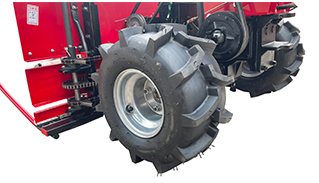Oct . 14, 2024 07:00 Back to list
Understanding Brake Drum Functionality and Maintenance in Trucks for Optimal Performance
The Importance of Brake Drums on Trucks
When it comes to the safe operation of trucks, one of the most critical components is the braking system. Within this system, brake drums play an essential role, particularly in heavy-duty vehicles like trucks. Understanding the function, structure, and maintenance of brake drums is key to ensuring the safety and efficiency of these vehicles.
What Are Brake Drums?
Brake drums are circular components that form part of a drum brake system. They are typically made of cast iron or aluminum and are attached to the wheels of a truck. When the driver depresses the brake pedal, brake shoes inside the drum expand against the drum's inner surface. This friction slows down the rotation of the wheel, allowing the vehicle to stop. The design of brake drums is particularly advantageous for trucks, as they are capable of handling the immense weight and force generated during braking.
Why Are Brake Drums Important?
1. Safety The primary function of brake drums is to ensure the safe stopping of a vehicle. Trucks are often laden with heavy cargo, making effective braking essential. Failing to maintain or replace worn-out brake drums can lead to brake failure, resulting in dangerous situations on the road.
2. Heat Dissipation Brake drums are designed to manage heat generated by friction when slowing down. Properly functioning drums help dissipate this heat, preventing overheating that can cause brake fade and reduce braking efficiency. Over time, however, brake drums can become warped or damaged, which can impede their ability to disperse heat.
3. Durability Trucks are built to endure rigorous driving conditions. Brake drums must withstand not just the weight of the load but also road conditions, weather, and wear over time. High-quality brake drums provide durability and longevity, reducing the frequency of replacements and, consequently, repair costs.
Signs of Brake Drum Wear
Maintaining brake drums is vital for truck operation. Here are some signs that indicate it may be time for an inspection or replacement
- Unusual Noises If the driver hears squeaking, grinding, or other strange noises when applying the brakes, it may indicate that the brake shoes are worn down or that the drum itself is damaged.
brake drum on truck

- Vibrations If you feel vibrations in the brake pedal or steering wheel when braking, this may signal an issue with the brake drums, such as warping or uneven wear
.- Longer Stopping Distance If the truck takes longer to stop than usual, it may suggest that the brake drums are no longer functioning effectively.
- Visual Inspection Regularly inspecting brake drums for signs of physical damage, such as cracks or abnormal wear patterns, can help identify problems before they escalate.
Maintenance Tips for Brake Drums
1. Regular Inspections Schedule routine checks of the braking system, including the brake drums, to ensure they are in good condition.
2. Correct Adjustments Ensure that brake drums are properly adjusted to maintain optimal performance. Incorrectly adjusted brakes can lead to premature wear and insufficient braking power.
3. Quality Parts When replacing brake drums, opt for high-quality components. Investing in reliable parts can extend the lifespan of the braking system and enhance overall vehicle safety.
4. Professional Servicing Engage professional mechanics for maintenance and repairs. They are equipped with the tools and knowledge necessary to handle complex brake systems effectively.
Conclusion
Brake drums are a fundamental element of truck safety, which cannot be overlooked. They ensure that heavy vehicles can stop efficiently, even under challenging conditions. By understanding their importance and keeping up with regular maintenance, truck drivers can enhance their safety on the road and prolong the life of their vehicle's braking system. Proper attention to brake drums not only protects the driver but also other road users, making it an indispensable part of responsible truck operation.
-
Scania Brake Drums: OEM Quality for Optimal Safety & Durability
NewsAug.16,2025
-
R.V.I: Advanced Remote Visual Inspection for Precision
NewsAug.15,2025
-
Discover HYUNDA: Innovative Vehicles, Equipment & Solutions
NewsAug.14,2025
-
R.V.I: Unlock Advanced Insights & Real-time Performance
NewsAug.13,2025
-
Kamaz Brake Drum: Durable & Reliable for Heavy Duty Trucks
NewsAug.12,2025
-
Heavy Duty Iveco Brake Drum - Premium Quality & Safety
NewsAug.11,2025
